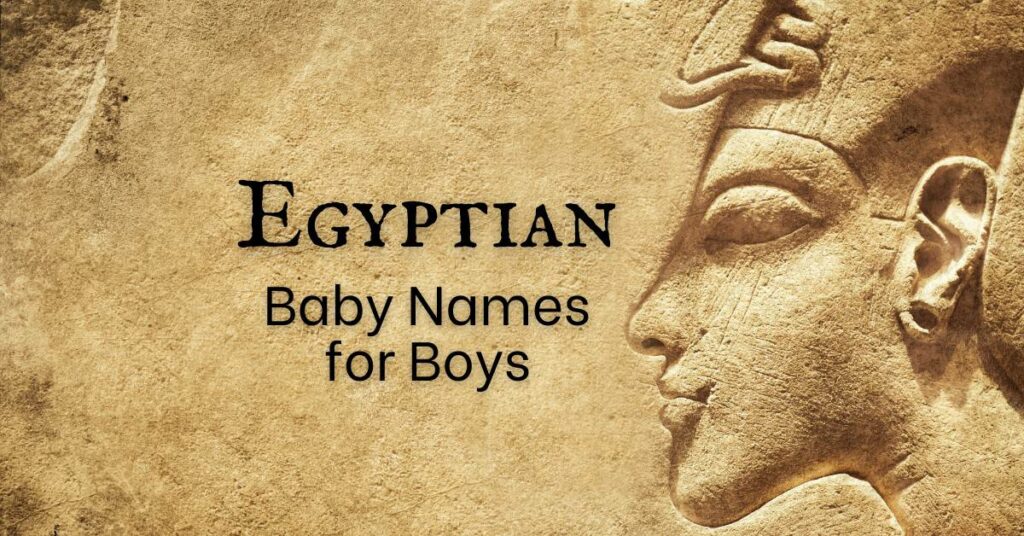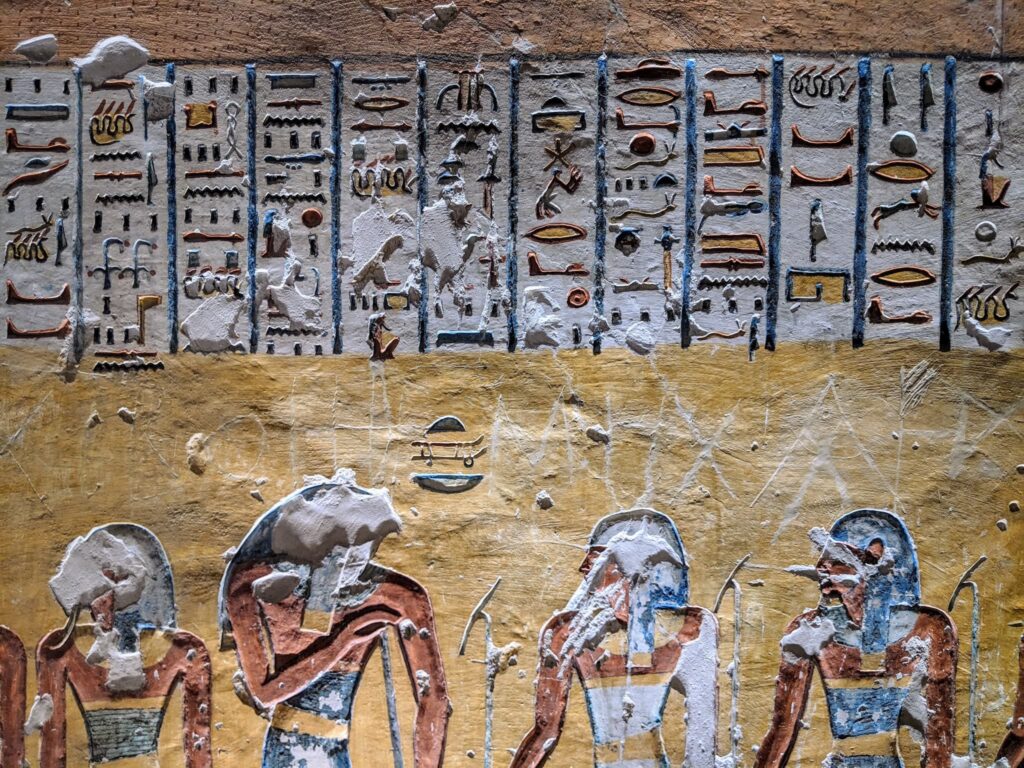
Using names from the past is a trend today. Parents are now using names that were inspired by historical figures, events, stories, or culture. One of these trends is using ancient Egyptian names. How are these names created and what are the popular Egyptian names used by parents nowadays? Get to know them as you move along from this article.
Egypt is one of the oldest countries to exist in the world. Their civilization was estimated to begin way back in 3100 B.C.E. As a rough estimate, that is around 5000 years from our present date. Since their existence, Egypt has undergone a lot of changes. It was conquered by different civilizations, such as the Macedonians, followed by the Romans, and Sasanians until it became a caliphate. With a lot of transitions in its history, Egyptian names also evolved differently per era.

Today’s Egyptian names are mostly influenced by Islamic culture. But during the ancient time, Egypt has its naming convention. Egyptian names are quite short, mostly having 2 to 3 syllables in it. Ancient Egyptian names were chosen to represent an individual’s personality, with little influence on the parent’s devotion to their deity. Common and simple names in Egyptian society use nouns and adjectives. Check out some examples below.
Apart from nouns and adjectives, an Egyptian name may also be derived from statements. The best example of this is the name Hatshepsut, which translates as “foremost of noble ladies”. Additionally, Egyptian names are often repeated among members of the same family.
Do you know that ancient Egyptians are fond of creating nicknames for their children or friends? Nicknames are a common idea in Ancient Egypt. Below are some examples of Egyptian nicknames that are popular today.
Do you know that Ancient Egyptians believed that power is sourced through owning and knowing names? They believe that if someone knows your name, they may have the power to govern over you. Because of this belief, Egyptians had the habit of placing unwanted names (either a person or an animal) into potteries and smashing them. They also have a belief that their deity, Renenutet, gives every newborn Egyptian a secret name to protect them from birth until the right age. That is why some of them change their names when they grew to the right ages or are given a new name by an elder or a parent.
Unlike other nations ruled mostly by men, while queens are left as wives or secondary rulers, Ancient Egypt has accepted and embraced Queen rulers in their history. Below are four of the important Egyptian Queens that shaped ancient Egypt.
Perhaps Queen Cleopatra is the most famous of all Egyptian Queen rulers. Her name was heavily romanticized in history books and novels. She is often portrayed as a queen who had an affair with the Roman general Mark Antony. Queen Cleopatra was born in 69 B.C.E. Her complete name is Cleopatra VII Thea Philopator. Despite her being Queen of Egypt, her name is of Greek origin which means “The Goddess Cleopatra, the Beloved of Her Father”.
Queen Nefertiti is considered one of the most beautiful rulers of ancient Egypt. Her famous facial cosmetics are even used today. Queen Nefertiti’s background and early life are a bit shrouded in mystery. There were no written accounts about her origin nor her complete family lineage. All the details entail are that she was the wife of Pharaoh Akhenaten, bearing six daughters with him. She was known for changing the polytheistic beliefs of Egyptians into monotheistic worship of the sun god, Aton. Nefertiti means “a beautiful woman has come” when translated into English.
Unlike Queen Cleopatra and Queen Nefertiti, Queen Hatshepsut was known for her iron will. She ruled a strong Egypt for straight 21 years, the longest reign of any female ruler of ancient Egypt. The most striking thing when hearing Hatshepsut’s name was her demands to be treated as a man during her reign. He ordered all her subordinates and advisers to address her as Pharaoh instead of Queen. This angered some of the traditional advisers of the royal houses. After her death, Thutmose III, her stepson, and successor, erased most of her records to make it a point that no female Pharaoh will have ever existed. Queen Hatshepsut’s rule was known to be the most peaceful, making way for many improvements in architecture and construction. Hatshepsut translates as “Foremost of Noble Ladies” in the English language.
Merneith is a regent of Ancient Egypt in the First dynasty. She was indirectly a queen nor a ruler, since her son, Den, was an existing Pharaoh during her time. But since her son is too young to rule an entire nation, she did most of his work on his behalf. She is believed to be the first female ruler and the earliest queen regnant to be recorded in Egypt’s history. Her name translates as “beloved by Neith”.

Cats are the most important animal in Ancient Egypt. Egyptians believed that cats are mythical beings that bring good luck to anyone who shelters them. Wealthy families during this time decorate cats in luxurious jewels and feed them scrumptious meals like royalty. Additionally, when a cat passes away, they are mummified like humans. Below are some names bestowed on Egyptian cats.
While cats are special for Egyptians, dogs were highly regarded for their ability to protect territories and hunt. They can be named similarly to cats and their name have meanings. Below are a few examples of Egyptian dog names.